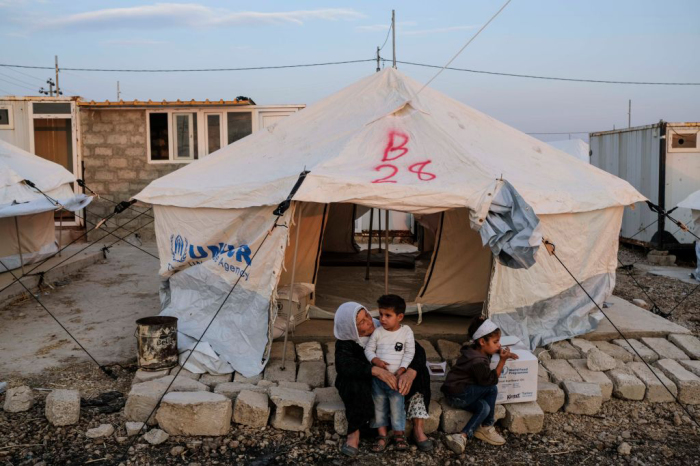Trump faced 'overwhelming pushback' from conservative Christians on Syria policy, Sen. Graham says

President Donald Trump faced "overwhelming" pushback from conservative Christians for his decision to pull troops out of the northern region of Syria in a move that was viewed by many as an abandonment of Kurdish allies, Sen. Lindsey Graham said, but he was ultimately persuaded by the argument that Syrian oilfields needed protection.
In a Nov. 20 speech at the dinner for the Jewish Institute for National Security of America, Graham, R-S.C., recounted that the president was "sort of surprised,” that "people didn’t stand up and cheer, when he said, we’re getting out of Syria.”
The South Carolina senator went on to explain that the views of conservative-leaning Christians factored into that decision, according to Kurdistan24.
“[T]he pushback from the Christian conservative community about us abandoning the Kurds was overwhelming,” Graham said.
Trump's decision to withdraw troops from northern region of Syria earlier in October was widely criticized, with many on both sides of the political aisle saying he had betrayed the Kurdish people who have been longtime allies of the U.S.
The withdrawal allowed Turkey to attack across its southern border and into Syria.
“Trump tried to keep Erdogan” from entering Syria, “but he went in anyway,” Graham explained in an discussion with JISNA President Michael Makovsky at the dinner last month.
“I told President Trump that in the Middle East, there’s no such thing as a yellow light. It’s either red, or it’s green.”
What ultimately marked a turning point, he said, was his contention that Iran would come in and take the oil fields in Syria as a result of the Kurds having to engage a multi-front conflict. Graham contended that the elements of the Syrian Democratic Forces that had assisted in the U.S. victory would be exposed by the Turks, ISIS would return, the Kurds would not simultaneously be able to resist Turkey and keep an eye on ISIS.
“When I mentioned oil fields, then the light went on,” Graham said.
“So it’s my hope that this new counter-ISIS strategy, centered around denying the enemy the benefits of the oil reserves and keeping Iran out will be more sustainable than the other approach.”
In October, two days after Turkey's President Recep Tayyip Erdogan warned that a military offensive was planned, Trump ordered around 50 U.S. soldiers in the area to pull back, which paved the way for the Turkish offensive in the autonomous region of northern Syria in an attempt to expel Kurdish forces that were once backed by the U.S. in the fight against the Islamic State.
Turkey has long believed that the Kurdish rebels in Syria are “terrorist” entities tied to the Kurdistan Workers Party (PKK), a Kurdish separatist group in Turkey. Gen. Mazlum Abdi, the leader of the Syrian opposition forces led by the Kurdish People's Protection Unit, used to be part of the PKK, which has waged a decades long battle with Turkey.
A five-day cease-fire agreement was subsequently reached amid the fighting and per the terms of the agreement the U.S. agreed not to put more sanctions on Turkey and to lift sanctions recently imposed on Turkey if the cease-fire became permanent, which eventually occurred.
Days before Thanksgiving, Vice President Mike Pence visited Erbil, Iraq, the Kurdistan region, reaffirming the U.S. commitment to combating Islamic State actors.
A senior official told The Associated Press that Pence’s visit "was meant both to reassure Iraqi Kurds who remain allied with the U.S. in the fight against [the Islamic State], as well as Americans who have long supported the Kurdish cause.”
Amid the fallout from the October decision to withdraw soldiers, even some of Trump's most vocal evangelical Christian supporters expressed their dismay.
“An invasion by Turkey into NE Syria would pose a grave threat to the region’s Kurds and Christians, endangering the prospects of true religious freedom in the Middle East,” Tony Perkins, head of the Family Research Council and a USCIRF Commissioner, tweeted at the time.
Likewise, evangelist Franklin Graham asked for prayer for those affected by the White House decision to remove the troops.
“Both Democrat and Republican leaders are deeply concerned because this would be, in essence, abandoning our closest allies there — the Kurdish people,” he tweeted.



























